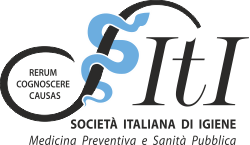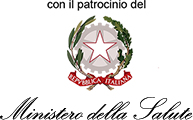The hypothesis
The hypothesis of a causal relationship between vaccination and encephalitis specifically concerns two vaccines: the measles vaccine, and the pertussis (whooping cough) vaccine.
As regards the first, at the end of the 1960s there were reports of sporadic clinical cases of encephalitis / encephalopathy occurring shortly after the measles vaccination (1-3). In 1974, the Journal of the American Medical Association published an article describing 84 patients who had presented neurological symptoms within 30 days of the administration of the measles vaccine (4). Years after this publication, an article published in Pediatrics (5) identified a series of cases of encephalitis occurring between 5 and 15 days after measles vaccination.
With regard to the pertussis vaccine, in January 1974 an article was published describing a series of 36 cases of English children who, according to the authors, had suffered from severe neurological complications caused by vaccination against pertussis 6.
Scientific elements refuting a causal relationship between vaccines and encephalitis
The 1974 article on the alleged correlation between the pertussis vaccine and encephalitis caused a great outcry in Britain and a series of discussions on the safety of whole cell pertussis vaccine which was the product used for vaccination at that time.
Vaccination coverage for pertussis in the UK decreased rapidly and 3 outbreaks followed one another until the early 1980s with over 100,000 cases and around 40 deaths. During this period, many doctors advised their patients against vaccinating7.
The scientific discussion on the possible link between the pertussis vaccine and encephalitis gave rise to an initiative to promote an epidemiological study, the National Childhood Encephalopathy Study, to verify this hypothesis8. The study in question, a case-control study, suggested a modest link between the vaccine and permanent neurological events classifiable as encephalitis / encephalopathy which in absolute terms was quantifiable in 1 permanent neurological damage every 310,000 doses8. Numerous studies aimed at establishing the validity of these conclusions followed. The English study itself, in the light of a reanalysis of the data, while suggesting a modest increase in neurological events shortly after vaccination, showed a reduction of the same in the following period9. In a well-known editorial published in 1990, Jim Cherry concluded that the introduction of new, less reactogenic vaccines was necessary, not because of the possible association with encephalopathy, but to reduce a series of relatively frequent, although not serious, side effects, such as fever, persistent crying, and episodes of hypotonia10.
In 1993 following a review of the available literature, the Institute of Medicine concluded that the available evidence was consistent with an association between the measles and whole-cell pertussis vaccines and encephalopathy, even though the same evidence could not be considered conclusive and was insufficient to indicate the presence or absence of a causal relationship11.
In the mid-1990s, most developed countries opted for acellular pertussis vaccines.
Further studies were carried out to retrospectively evaluate cases of encephalopathy and the link between this pathology and the pertussis and measles vaccines.
A study published in 2004 showed that, based on data collected by a Canadian surveillance system for adverse reactions to vaccinations, in seven cases which were initially identified as suspected pertussis vaccine encephalopathy, a precise diagnosis was always identified that contradicted the initial suspicion12.
In a retrospective study conducted in the United States in 2006, 452 cases of children with encephalopathy were analysed: their vaccination history was compared with that of healthy children of the same age and provenance, and it was found that children with encephalopathy had not received measles or pertussis vaccines more often than the healthy control subjects.
A recent study13 similar to the one previously-published confirmed the same conclusions.
Conclusions
Although the risk of encephalitis following measles and pertussis vaccination has been considered biologically plausible, no study has confirmed the existence of a causal link.
Sources / Bibliography
- Pestri T. Encephalitis after live measles virus vaccine. Can Med Assoc J. 1966 May 21;94(21):1133.
- Schneck SA. Vaccination with measles and central nervous system disease. Neurology. 1968 Jan;18(1 Pt 2):78-82.
- Barbor PR, Grant DB. Encephalitis after measles vaccination. Lancet. 1969 Jul 5;2(7610):55-6.
- Landrigan PJ, Witte JJ. Neurologic disorders following live measles-virus vaccination. JAMA. 1973 Mar 26;223(13):1459-62.
- Weibel RE, Caserta V, Benor DE, Evans G. Acute encephalopathy followed by permanent brain injury or death associated with further attenuated measles vaccines: a review of claims submitted to the National Vaccine Injury Compensation Program. Pediatrics. 1998 Mar;101(3 Pt 1):383-7.
- Kulenkampff M, Schwartzman JS, Wilson J. Neurological complications of pertussis inoculation. Arch Dis Child 1974;49:46–9.
- Baker JP. The pertussis vaccine controversy in Great Britain, 1974–1986. Vaccine 2003, 21:4003-10
- Alderslade D, Bellman MH, Rawson NSB, Ross EM, Miller, DL. The national childhood encephalopathy study: a report of 1000 cases of serious neurological disorders from the NCES research team. Whooping Cough 1981;80–149
- MacRae KD. Epidemiology, encephalopathy, and pertussis vaccine. In: FEMS Symposium pertussis. Proceedings of the Conference Organized by the Society of Microbiology and Epidemiology of the GDR. April 22, 1988, Berlin
- Cherry JD. 'Pertussis vaccine encephalopathy': it is time to recognize it as the myth that it is. JAMA. 1990 Mar 23-30;263(12):1679-80. Erratum in: JAMA 1990 Apr 25;263(16):2182. PubMed PMID: 2308206
- Cowan LD, Griffin MR, Howson CP, Katz M, Johnston RB Jr, Shaywitz BA, Fineberg HV. Acute encephalopathy and chronic neurological damage after pertussis vaccine. Vaccine. 1993 Nov;11(14):1371-9. Review. PubMed PMID: 7906066
- Moore DL, Le Saux N, Scheifele D, Halperin SA; Members of the Canadian Paediatric Society/Health Canada Immunization Monitoring Program Active (IMPACT). Lack of evidence of encephalopathy related to pertussis vaccine: active surveillance by IMPACT, Canada, 1993-2002. Pediatr Infect Dis J. 2004 Jun;23(6):568-71. PubMed PMID: 15194842
- Pahud BA, Rowhani-Rahbar A, Glaser C, Gavali S, Salibay CJ, Fireman B, Dekker CL. Lack of association between childhood immunizations and encephalitis in California, 1998-2008. Vaccine. 2012 Jan 5;30(2):247-53
- Ray P, Hayward J, Michelson D, Lewis E, Schwalbe J, Black S, Shinefield H, Marcy M, Huff K, Ward J, Mullooly J, Chen R, Davis R; Vaccine Safety Datalink Group. Encephalopathy after whole-cell pertussis or measles vaccination: lack of evidence for a causal association in a retrospective case-control study. Pediatr Infect Dis J. 2006 Sep;25(9):768-73. PubMed PMID: 16940831



